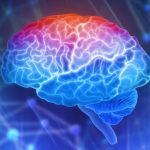If you or someone you care about has suffered a concussion recently, then you’re probably wondering: how long will it take to recover?
At Northoak Chiropractic Neurology, we often get questions about recovery time for concussions. The truth is that recovery time for a concussion will vary depending on the person and the nature of their injury. Most people will recover in a few weeks or a month, but approximately 15% of people who have severe concussions will have symptoms that last over a year.
If your symptoms have persisted for more than a month, then you have a condition called Post-Concussion Syndrome (PCS) and you will need intervention to help treat your condition.
In this blog, we’ll review the basics of concussions, explain how long it takes to recover from a concussion, and how you can reach recovery faster.
Please leave a comment below if you have any questions!
Concussions 101
What is a concussion?
A concussion is a type of traumatic brain injury (TBI) that is caused when the head is bumped or moved abruptly.
Concussions are commonly caused by sports injuries and car accidents, but they can occur with simple slips and falls.
Many concussions are not diagnosed until sometime after the injury. If you have had a head injury in the past 24 to 48 hours and you suspect that it may be a concussion, then we recommend that you seek medical attention by going to the closest emergency room. Acute care for concussions is best handled in the hospital.
What are the symptoms of a concussion?
A concussion can cause a number of different symptoms, depending on the patient and the nature of the brain injury. Some common symptoms of concussions include:
- Dizziness
- Difficulty concentrating or thinking clearly
- Blurry vision
- Headaches
- Memory problems
- Sensitivity to light or noises
- And more
These symptoms may not appear for hours, or even days, following the initial injury. If you have suffered a concussion, you will likely exhibit some of the symptoms listed above, although it is also possible that you will show other symptoms.
You can learn more about common concussion and PCS symptoms here.
What is causing my concussion symptoms?
If you have suffered a concussion, your symptoms are likely being caused by a mild to severe injury to your brain.
In concussions, the common mechanisms of injury are the impact of your brain against the inside of the skull and the twisting of the brain stem. Both types of injury can cause damage to neural pathways, which is typically what creates concussion symptoms.
Although it is not possible to rebuild broken neural pathways, you can strengthen or restore normal brain function by creating new connections within the injured pathways. This process of driving neuroplasticity is a core part of our concussion and PCS treatment process at Northoak
Recovery & Treatment
How long does it take to recover from a concussion?
In our experience, it can take anywhere from a week up to a month for a person to recover from a concussion on their own. Many experts will estimate the average recovery period between 7-10 days, but we prefer to recommend a month’s downtime to give the body a chance to heal itself naturally.
Once four weeks have passed following your initial injury, we suggest scheduling a consultation with our team to discuss further treatment options.
What is the best way to recover from a concussion?
The best way to recover from a concussion is to avoid activities that will trigger your concussion symptoms. Here are a few of our team’s recommendations for your concussion recovery period:
1. Avoid Visual Stimuli
Most people will want to avoid their computer or smartphone, video games, and even reading while recovering from a concussion. If you are light sensitive, experience dizziness, or have trouble with blurred vision, you should keep visual tasks to a minimum to avoid eye strain.
2. Try Audiobooks
For some patients, audiobooks can be a good way to pass the time. For others, sound sensitivity may make it difficult to listen to things over a stereo system. In these cases, playing an audiobook with headphones at low volume may be an option.
3. Ketosis
If possible, we often recommend that patients push themselves into ketosis by skipping breakfast and fasting for 12 hours every day. If you’re not familiar with the term, ketosis is a normal metabolic process that occurs when the body burns stored-up fat cells for energy instead of glucose. It can be encouraged by sticking to a low-carb diet.
We recommend ketosis in concussion patients because ketosis will trigger another biological process in the body called ‘autophagy’. This process is how the body naturally digests any dead or damaged cell organelles and recycles them to make new ones. Autophagy will prompt your body to digest any brain cell components that were damaged by your injury and start to heal itself.
What treatment is available for concussions and post-concussion syndrome?
At Northoak, we use an approach called functional neurology to help treat your concussion and post-concussion syndrome. Functional neurology was developed from modern neuroscientific research, in particular, the concept of neuroplasticity.
We use functional neurology to find ways to rebuild or rewire neural pathways for individuals who are suffering from mild to severe brain damage, as a result of a traumatic brain injury (TBI). In this way, we can use careful training and supervised exercises to drive neuroplasticity in the injured areas and help restore normal brain function.
Read more about treatment for concussions and post-concussion syndrome (PCS) here.


